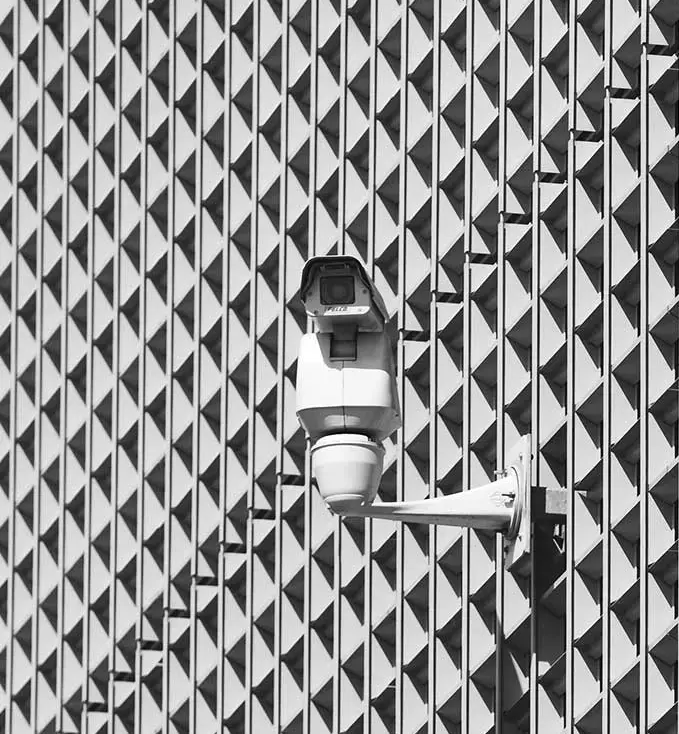
Privacy & Surveillance Law UK
With access to ever cheaper forms of technology and a desire to add extra security measures to your home or business, the use of CCTV and other surveillance equipment has become more popular. To ensure your security doesn’t turn into a liability, it’s important to know the do’s and don’ts of privacy and surveillance. This guide is on hand to provide you with what you need to know to get started.
Private Use
Privacy rights go hand in hand with surveillance and are integral to any decisions you may make regarding surveillance. In the UK, the Information Commissioner’s Office, or ICO, are responsible for upholding information rights and following their guidelines will stand you in good stead. Reading up about the CCTV Code of Practice, the Human Rights Act 1998, and the Data Protection Act 1998 are also good ways to ensure you understand what is required of you. As a homeowner, the use of CCTV on your own property is exempt from the Data Protection Act. As a deterrent against criminal or anti-social behaviour, surveillance can be very useful. It can also aid the police in finding and convicting criminals. While there are obvious security benefits, it is important to protect yourself from legal action.
If your security cameras capture your neighbour’s property or public property you may find yourself liable, so ensure that your recordings don’t spill over into properties other than your own. Appropriate use is very important and chatting with your neighbours can go a long way to assuring them of your intentions.
For example, explaining the reasons behind your CCTV installation or even inviting your neighbours over to see what you are recording can prevent any bad blood fomenting. Another important aspect of personal surveillance is that all information gathered on your CCTV equipment or other surveillance tool is your responsibility to protect. This extends to protecting the information from being uploaded to the internet and destruction of information after a suitable period. Furthermore, you will also need to ensure your family and any other occupants don’t misuse the information gathered in this way. While CCTV on private property is permitted, recording audio is still considered intrusive so if you purchase cameras with audio capabilities they should be disabled. Of course, cameras are not the only deterrent available and alarms or motion-sensitive lights can be more convenient options.
Company Use
Businesses can often find benefits in the use of surveillance. From security to insurance to productivity, having eyes and ears can provide great insight. However, unlike private use, business use means you have a few more hoops to jump through. Consent is a key concept in the use of surveillance at the workplace.
The Lawful Business Practice Regulations Act is the basis for company use and well-worth reading before installing any surveillance equipment. You may be familiar with some of the lawful practices already, for example, in call centres recorded conversations are often headed by a message informing both the employee and customer that the call is being recorded for future use. A similar use of cameras and GPS tools are used in delivery and haulage. These allow the business owner to make sure drivers are driving lawfully and not wasting the time or money of the employer. In an office space CCTVs are commonplace and are accompanied by signs letting people know of their presence. All of these details are a sample of the sort of thing required of business owners using CCTV or other surveillance equipment so consulting regulations and even a legal expert first are in your best interest.
Data Protection
A recent development, and one which will affect, people or companies already with surveillance equipment is the introduction of the GDPR. The GDPR, or General Data Protection Regulation, is a regulation to protect private data and ensure companies and third parties use, protect, and delete data in a legal manner. As such, digital video and audio recordings fall under the GDPR so brushing up on the implications will be in your best interest. A few of the biggest concerns to consider include: · Recorded footage can only be kept if it is relevant, so disposing of old footage is essential. ·
People or persons in footage must be protected so blurring faces, number plates, and other information is a must. · Security measures are essential, from encrypting data to ensuring only authorised personnel process the data recorded. These are just a few of the changes with the GDPR so familiarise yourself with the requirements to ensure you are using surveillance in a lawful manner. With such varied sets of rules and guidelines, it is important to understand your reasons for and usage of surveillance equipment.
Consult an expert and research the above-mentioned guidelines to ensure your property is secure in a lawful manner. Committing time to this research will give you, your family, and your employees' peace of mind.
If you’d like to find out more about the legal services offered by Smith Partnership, don’t hesitate to contact us via info@smithpartnership.co.uk. Alternatively, speak to a member of our team directly on 0330 123 1229.

Share this article






















